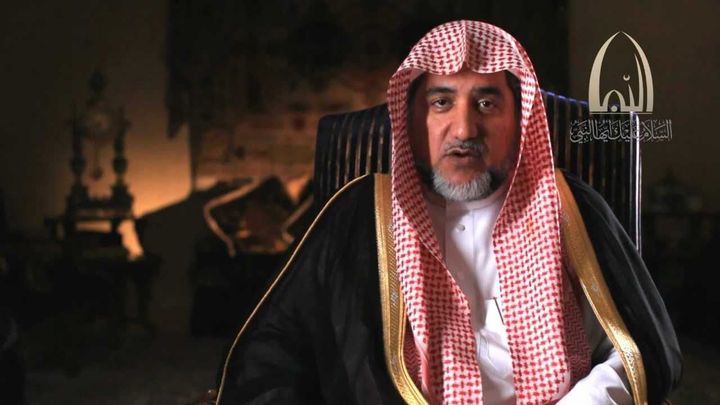In Defence Of Abu Hanifah
In defence of Imam Abu Hanifah – دفاع عن الإمام أبي حنيفة
Regarding some harsh statements of some Imams regarding Imam Abu Hanifah found in “Kitab al-Sunnah” of Abdullah, the son of Imam Ahmad – they were based on rumours and ‘قيل وقال’ … after the dust of fitnah settled, it became clear that the Imam Abu Hanifah was free from those allegations.
They should not be mentioned, because they were based on false information.
Saalih Ale Shaykh, who is a descendant of Mohammad Ibn Abdul-Wahab says, defending Imam Abu Hanifah:
هذا موجود في كتاب السنة لعبد الله بن الإمام أحمد، وعبد الله بن الإمام أحمد في وقته كانت الفتنة في خلق القرآن كبيرة، وكانوا يستدلون فيها بأشياء تنسب لأبي حنيفة وهو منها براء، خلق القرآن، وكانت تنسب إليه أشياء ينقلها المعتزلة من تأويل الصفات إلى آخره مما هو منها براء،
وبعضها انتشر في الناس ونقل لبعض العلماء فحكموا بظاهر القول، وهذا قبل أن يكون لأبي حنيفة مدرسة ومذهب؛ لأنه كان العهد قريبا عهد أبي حنيفة، وكانت الأقوال تنقل، قول وكيع، قول سفيان الثوري، سفيان بن عيينة، قول فلان وفلان من أهل العلم في الإمام أبي حنيفة، وكانت الحاجة في ذلك الوقت- باجتهاد عبد الله بن الإمام أحمد- كانت الحاجة قائمة في أن ينقل أقوال العلماء فيما نقل.
ولكن بعد ذلك الزمان كما ذكر الطحاوي أجمع أهل العلم على أن لا ينقلوا ذلك، وعلى أن لا يذكروا الإمام أبا حنيفة إلا بالخير والجميل، هذا فيما بعد زمن الخطيب البغدادي.
يعني في عهد الإمام أحمد ربما تكلموا، وفي عهد الخطيب البغدادي نقل مقولات في تاريخه معروفة، وحصل ردود عليه بعد، حتى وصلنا إلى استقراء منهج السلف في القرن السادس والسابع، وكتب في ذلك ابن تيمية الرسالة المشهورة :رفع الملام عن الأئمة الأعلام، وفي كتبه جميعا يذكر الإمام أبا حنيفة بالخير وبالجميل ويترحم عليه
“And these statements (criticizing Imam Abu Hanifah) are indeed present in the book of “Sunnah” by Abdullah, the son of Imam Ahmad.
In his time, there was a big Fitnah taking place regarding khalq-al-Qur’an, and people used to do istidlaal with things attributing them to Abu Hanifah, but he had nothing to do with it!
Also the Mu’tazilah used to attribute things to him regarding the ta’weel of the Sifaat, and these were again things which he had nothing to do with.
And some of these statements attributed to Imam Abu Hanifah spread among the masses and they reached some of the scholars, who judged on the statements that reached them.
This was before Imam Abu Hanifah had a school.
Statements are narrated from Wakii’, from Sufyan al-Thawri, from Sufyan bin Uyaynah, from this and from that person of knowledge, regarding Imam Abu Hanifah.
According to the ijtihad of Abdullah, the son of Imam Ahmad, it was neccesary to mention these statements in this way.
HOWEVER, after some time – as Imam al-Tahawi mentioned – the people of knowledge reached a consensus (ijmaa) that these statements should not be mentioned, and that the Imam Abu Hanifah should not be mentioned, except in a beautiful and good way. This is after the time of Khatib al-Baghdadi…
And Ibn Taymiyah wrote his famous Risalah titled: “Lifting the Blames from Great Scholars”, and in all his books he did not mention Imam Abu Hanifah except with goodness and in a beautiful way, asking God to have mercy on him.”
End quote.
Audio: https://www.youtube.com/watch?v=_WBOFCI3uhs&ab_channel=%D8%B9%D8%A8%D8%AF%D8%A7%D9%84%D9%84%D9%87%D8%A7%D9%84%D8%B3%D9%84%D9%81%D9%8A

Leave Your Comments